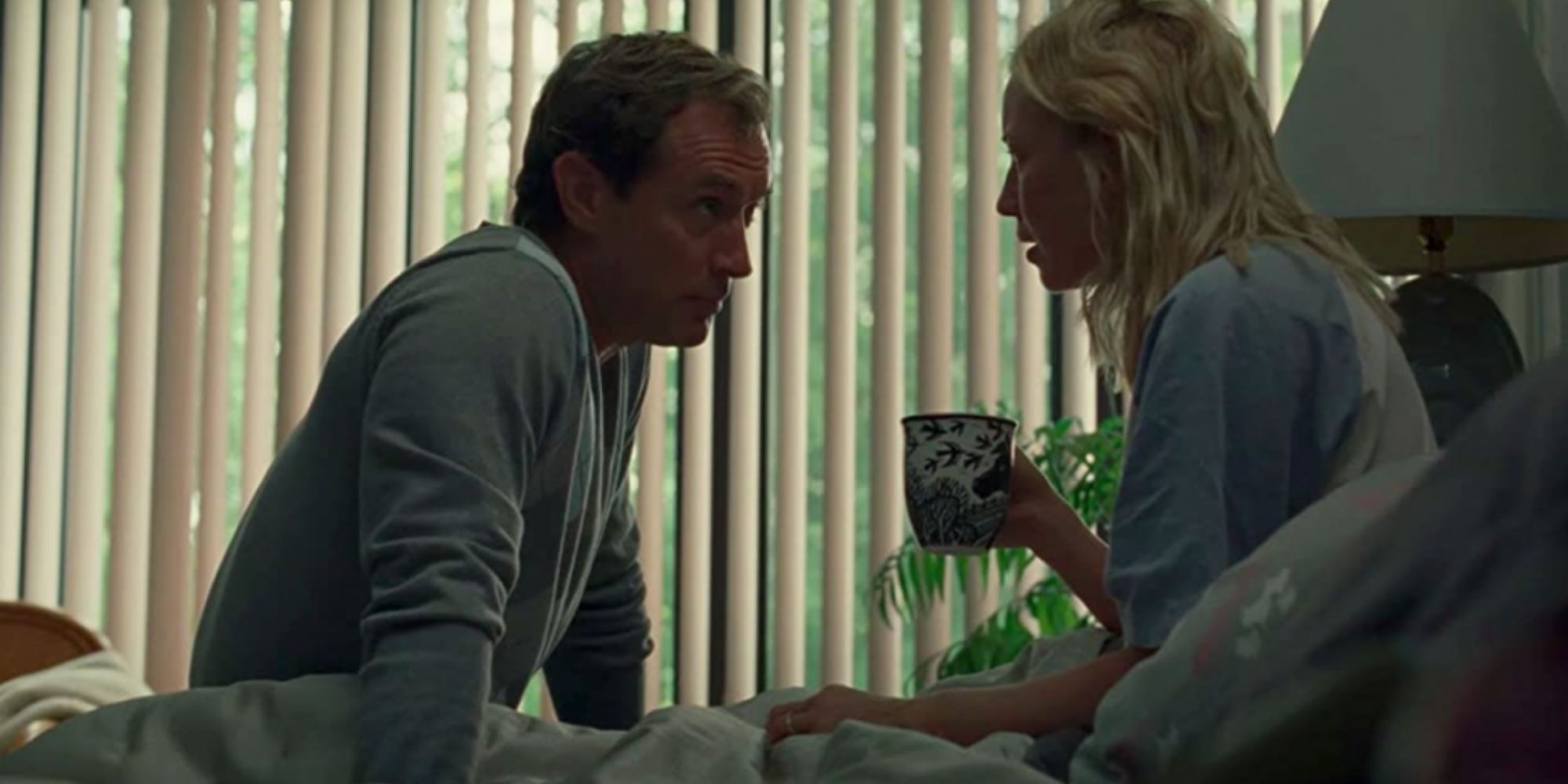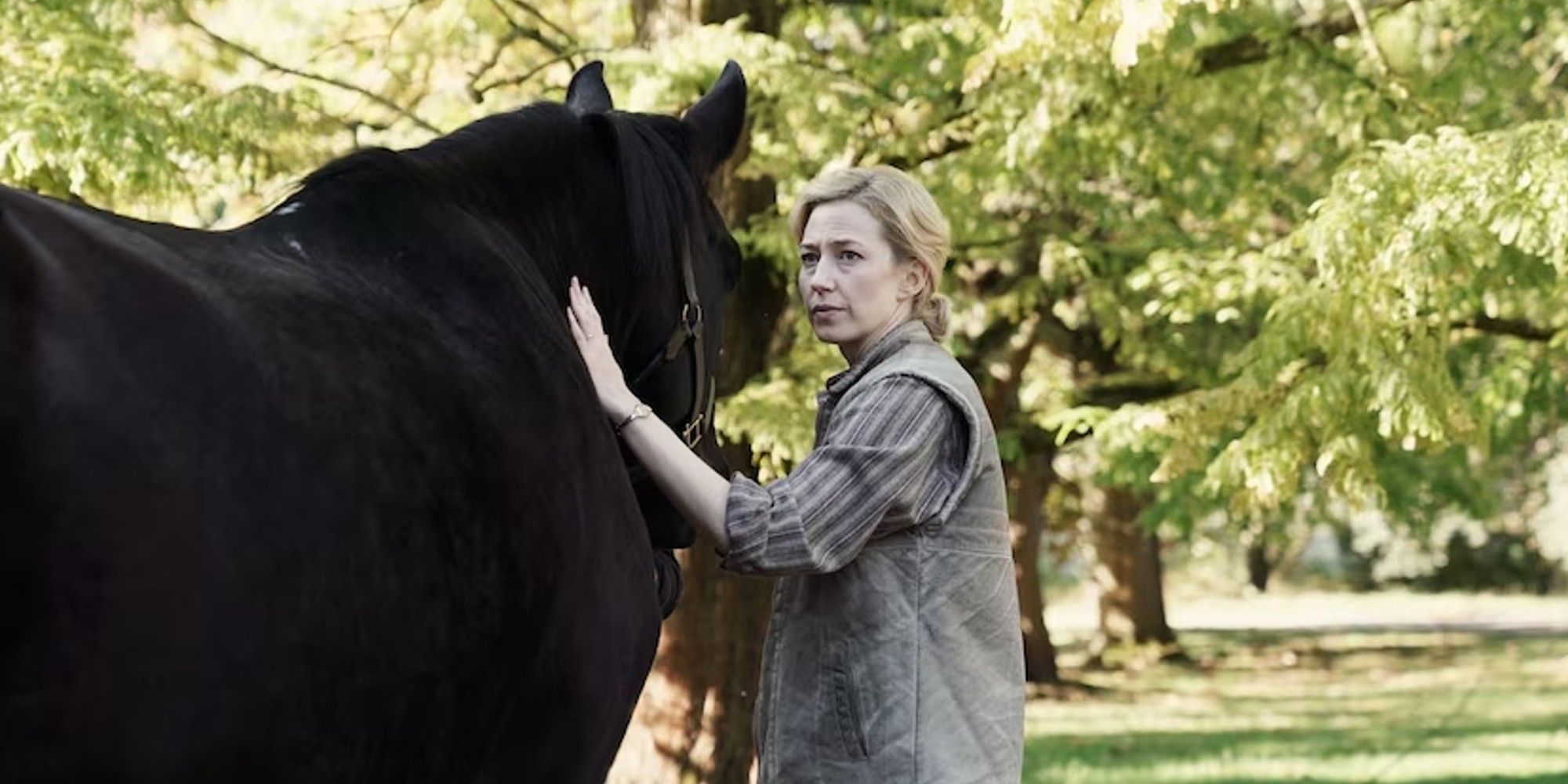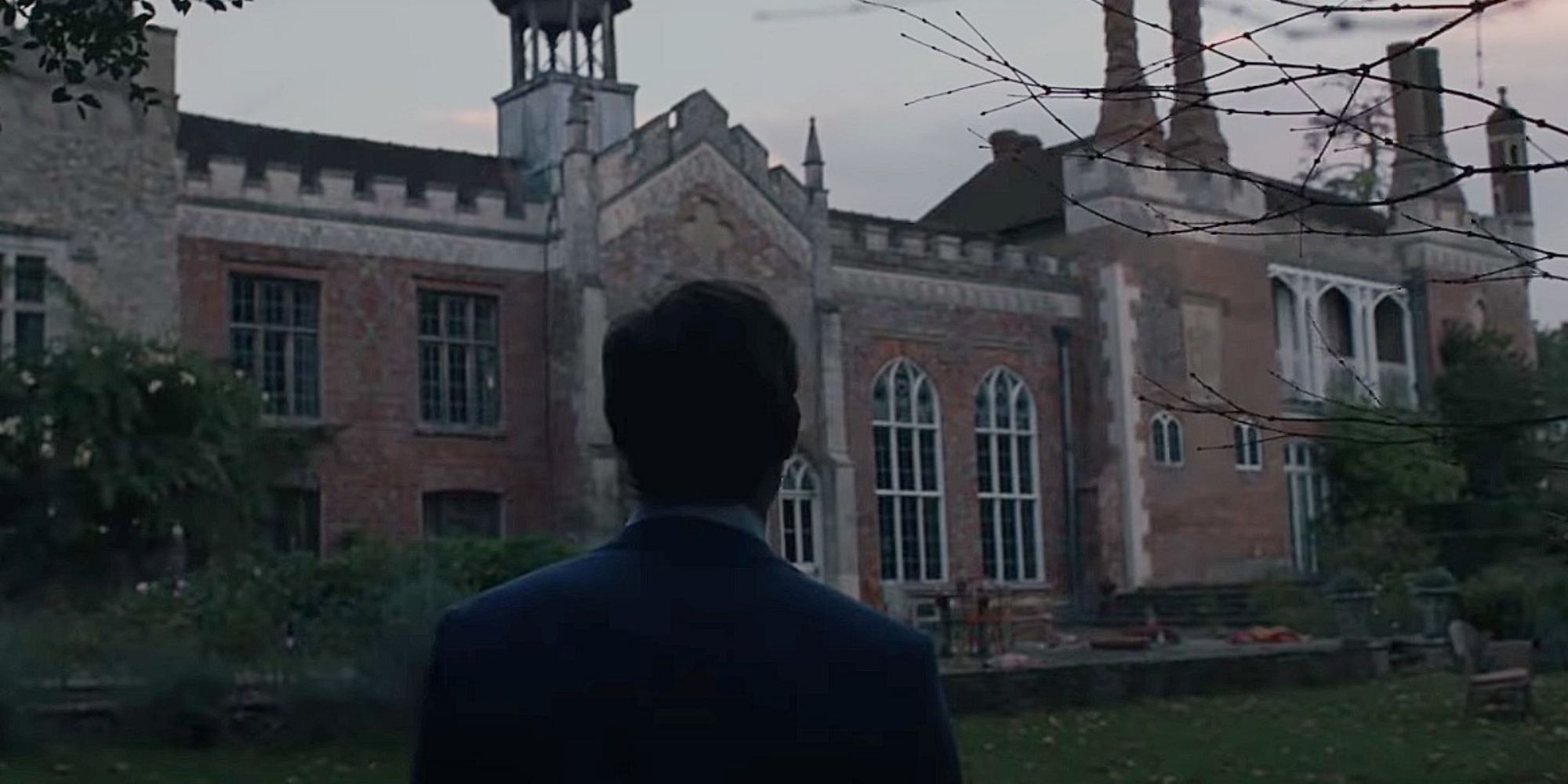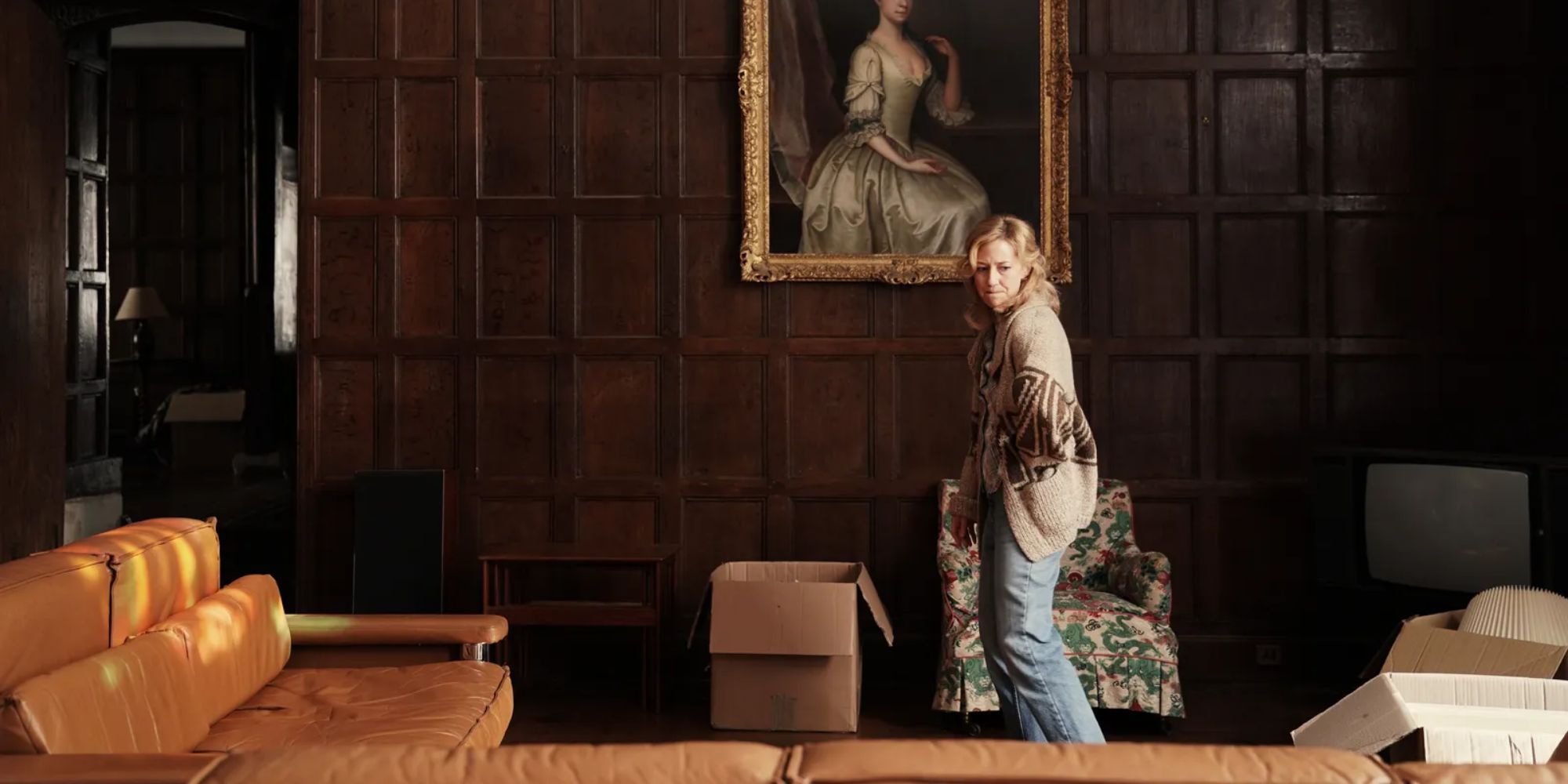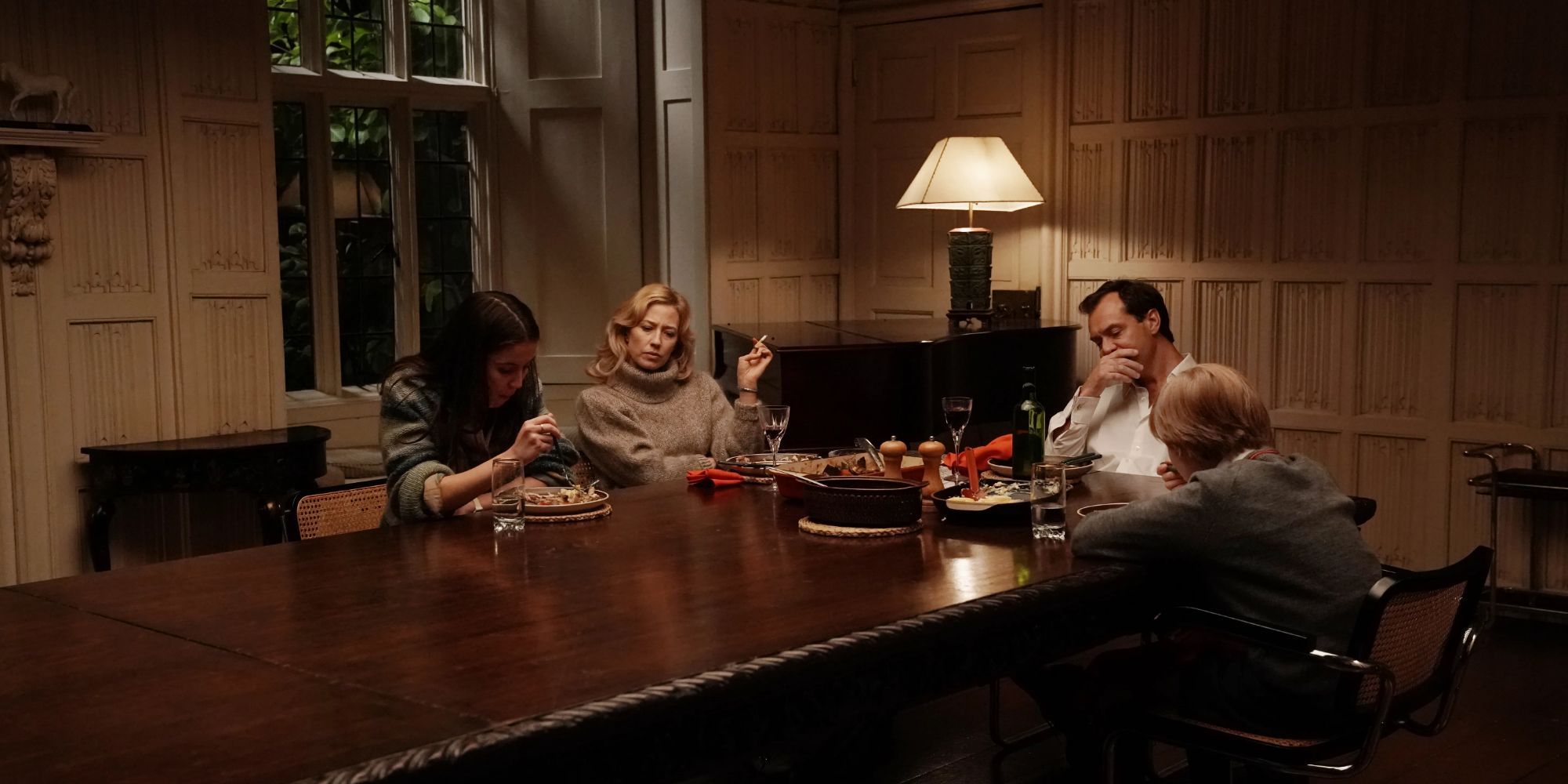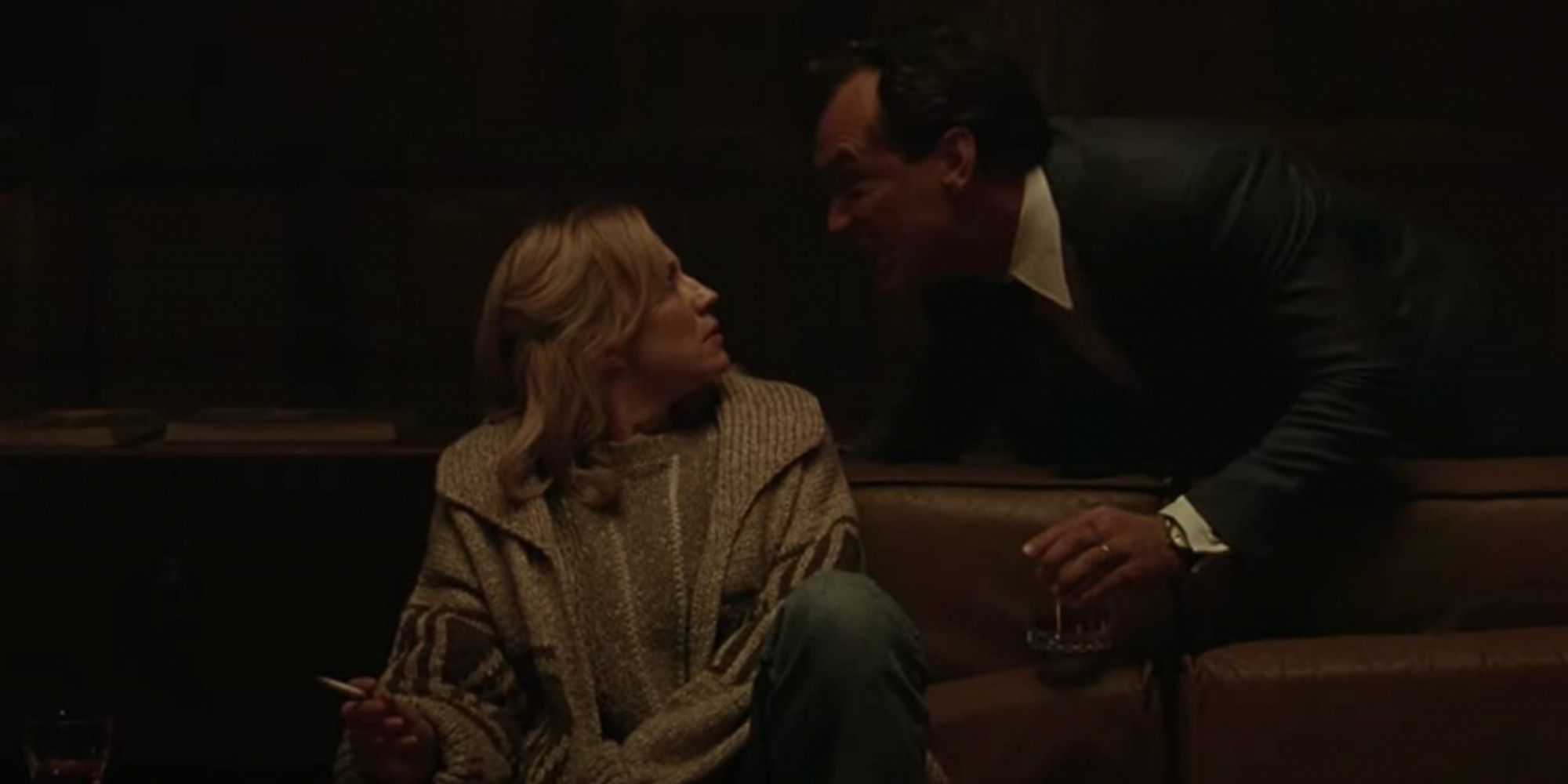
Unraveling The Nest's Ambiguous Ending
The Nest's abrupt ending left the O'Hara family's story ambiguous, but the symbolism throughout the film provides some hints regarding the outcome. The 2020 film, which was created by Sean Durkin (Iron Claw) and which reached Netflix's Top 10 in 2024, follows married couple Rory (Jude Law) and Allison (Carrie Coon) as they uproot their life in New York City to move to London. Rory believes that this move and the business venture that goes with it will earn him and his family financial security, but as he exhausts their savings with minimal return, the pressure becomes too much. Rory rents the family a beautiful and expensive estate in Surrey while continuing to spend and wrack up debt, believing that a coming business deal will change everything. However, this deal never comes through, and Allison's respect and patience for her husband deteriorate as he blatantly lies to his friends and colleagues about his wealth. Then, when Allison's beloved horse suddenly dies, and she begins to feel that the house itself is turning against her, she slowly begins to lose control. At a business dinner with Rory near the end of The Nest, Allison finally outs her husband as a fraud and abandons him at the restaurant.
Rory and Allison in The Nest
At the end of The Nest, Allison has lost all patience for her husband's need to get rich overnight. After being abandoned at the restaurant, Rory is forced to walk home, and when he finally makes it there in the morning, he finds Allison, Samantha, and Benjamin eating breakfast together. For a moment, he holds on to the idea that he can fix everything with one more big venture—this time suggesting that they leave the manor and move into an apartment in London so he can start his own business. However, when the family isn't willing to entertain this, Rory breaks down crying before joining his wife and children for breakfast. This is when the credits begin to roll, so what happens to Rory and Allison from then on is never overtly stated. Still, Rory's conversation with the cabbie as he tried to make his way home, combined with his breakdown at breakfast, indicates that he has realized that he can't keep putting his family through his schemes. His desire to be untouchably wealthy isn't sustainable, and the reveal that he had once managed to get his hands on a million dollars indicates that even if he succeeded, it wouldn't last. Rory learned that his family was what was important, and this would have been enough for Allison to keep trying.
The horse in the Nest
At first, Allison's horse, Richmond, just seemed like a beloved pet, but by the end of The Nest, the creature became entwined with the movie's complicated symbolism. Richmond never quite settled after the move to England, no matter how much Allison tried to nurture and comfort him. Then, the night Rory didn't return home, the horse collapsed under Allison and had to be put down. Richmond was unceremoniously buried that evening, but on the night that Allison drove home from Rory's dinner party, she thought she saw him standing in the road. Then, the next morning, she found that his body was partially unburied. Richmond's death reflected the end of Allison's patience with Rory—the moment that, as far as she was concerned, her marriage was dead. Overtaken with grief and emotion, Allison began to frantically dig around the corpse's face before pulling Richmond's head into her lap, weeping. This was the emotional climax for Allison's character and the point where the parallels between her marriage with Rory and the horse were revealed. Richmond's death reflected the end of Allison's patience with Rory—the moment that, as far as she was concerned, her marriage was dead. However, leading up to The Nest's final scene, Allison is confronted with the fact that she still loves her husband, just as she is confronted with Richmond's emerging body.
Jude Law standing in fron of the house in The Nest
The Haunting Symbolism of The Nest
As well as seeing the apparent ghost of her deceased horse, Allison experiences frequent hauntings in the manor Rory purchased for her in The Nest, which is where the movie's thriller status comes into play. She hears people moving where there is no one, and after locking the front door, she turns around to find that it is standing wide open. These occurrences send Allison spiraling, and at one point, she screams that her children feel like strangers to her. In all, she determines that there is certainly something very wrong with this beautiful, ancient home. Still, The Nest isn't technically a ghost story. Instead, the O'Hara's manor is haunted by the ugly spirit of wealth itself. Just as Allison's horse was a reflection of her marriage, the house was a reflection of Rory. It looks impressive on the surface, but inside, it's nearly empty of furnishings because the owners simply couldn't afford them. The more Rory tries to convince the world that he owns a penthouse in New York or summers in Portugal, the more the house seems to torment Allison.
Allison in the house from the Nest
The Family Dynamics and Emotional Turmoil
As charming as Rory appears in The Nest, it quickly becomes apparent that he is a compulsive liar. It's revealed that he had never received a job offer from his old boss in London and that everything he told Allison to convince her to move from New York hadn't been true. However, Rory seemed to reach a point where he believed his own stories and shamelessly lied in the presence of people who knew better. This makes him a difficult character to like for much of The Nest, but when he visits his mother, it becomes a little clearer how Rory got to be this way. It's implied in The Nest that Rory was heavily abused by his father. When he is reunited with his mother, her attitude regarding her late husband indicates that she did very little to protect Rory and may have closed her eyes to any wrongdoing (much to Rory's resentment). After being a powerless child, Rory believes that wealth will make him untouchable, as well as give him the satisfaction of providing for his family. However, his endless journey for money didn't change the fact that he had been abused. It only meant that Rory wasn't there for his family. Ultimately, Rory was never a bad person in The Nest, and this was something that his family, even Allison, recognizes throughout. Law's character in this top-rated Netflix film demonstrates how the quest for wealth can affect the soul, which, in turn, profoundly impacts loved ones. Rory's goal was turning his own home into a nightmare, and his family would eventually be turned out of it if he didn't make a change. It's difficult to say whether he truly gave up his old ways (that's not so easy a thing to do). However, the point of The Nest's ending is he and Allison were both willing to try, so it wasn't too late.
The O'Hara
Conclusion
In conclusion, The Nest delves into the complexities of marriage, family dynamics, and the pursuit of wealth, weaving a narrative rich in symbolism and emotional depth. The film's ambiguous ending leaves audiences pondering the fate of the O'Hara family, while the haunting symbolism of the manor and the emotional turmoil of the characters provide insight into the underlying themes. The Nest is not just a film about a family's struggle with financial instability, but a profound exploration of the impact of wealth on the human soul and the dynamics of familial relationships. Through the characters of Rory and Allison, the film paints a poignant picture of the consequences of relentless pursuit of wealth and the emotional toll it takes on those closest to us.
Allison and Rory fighting in The Nest
